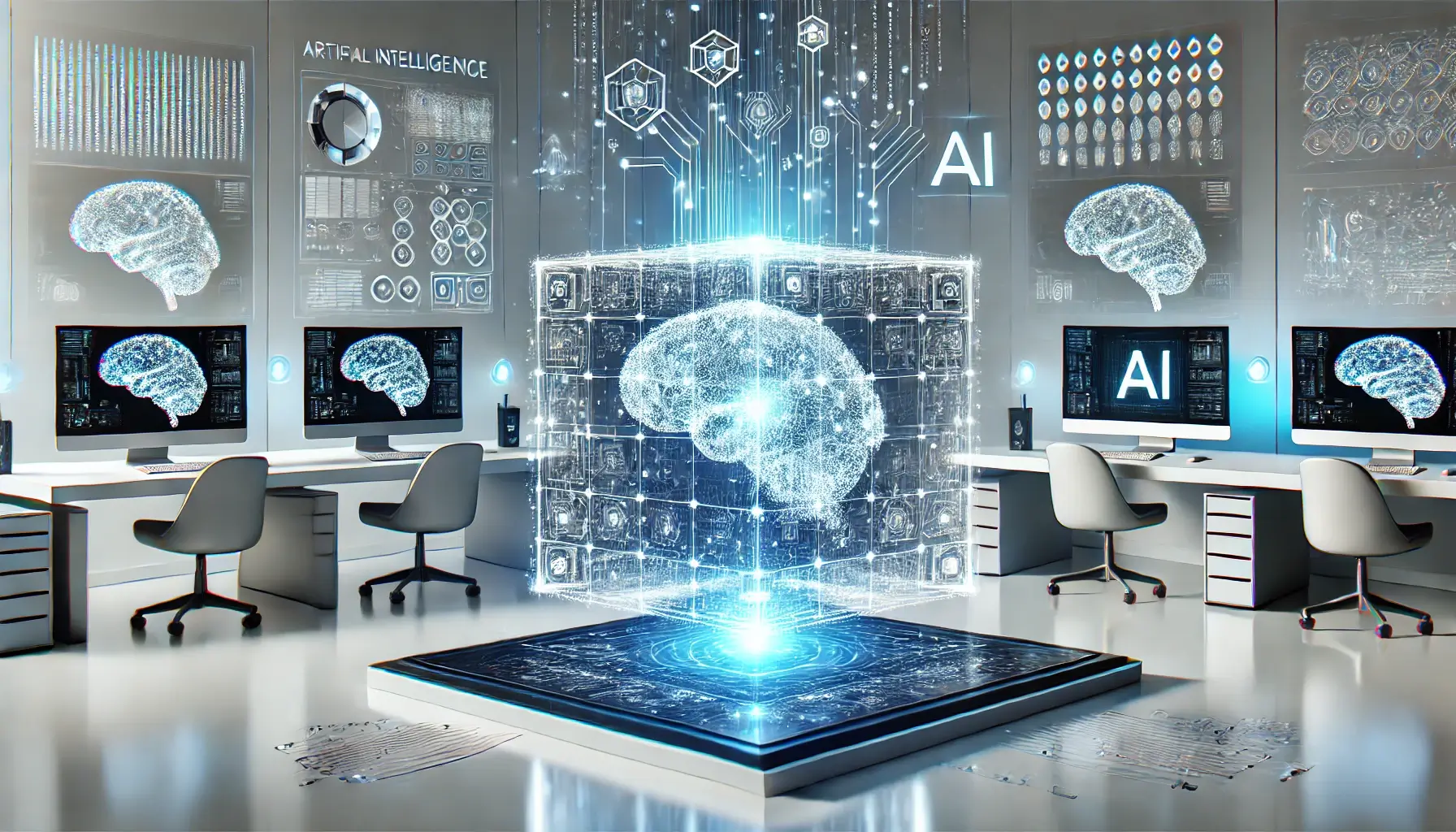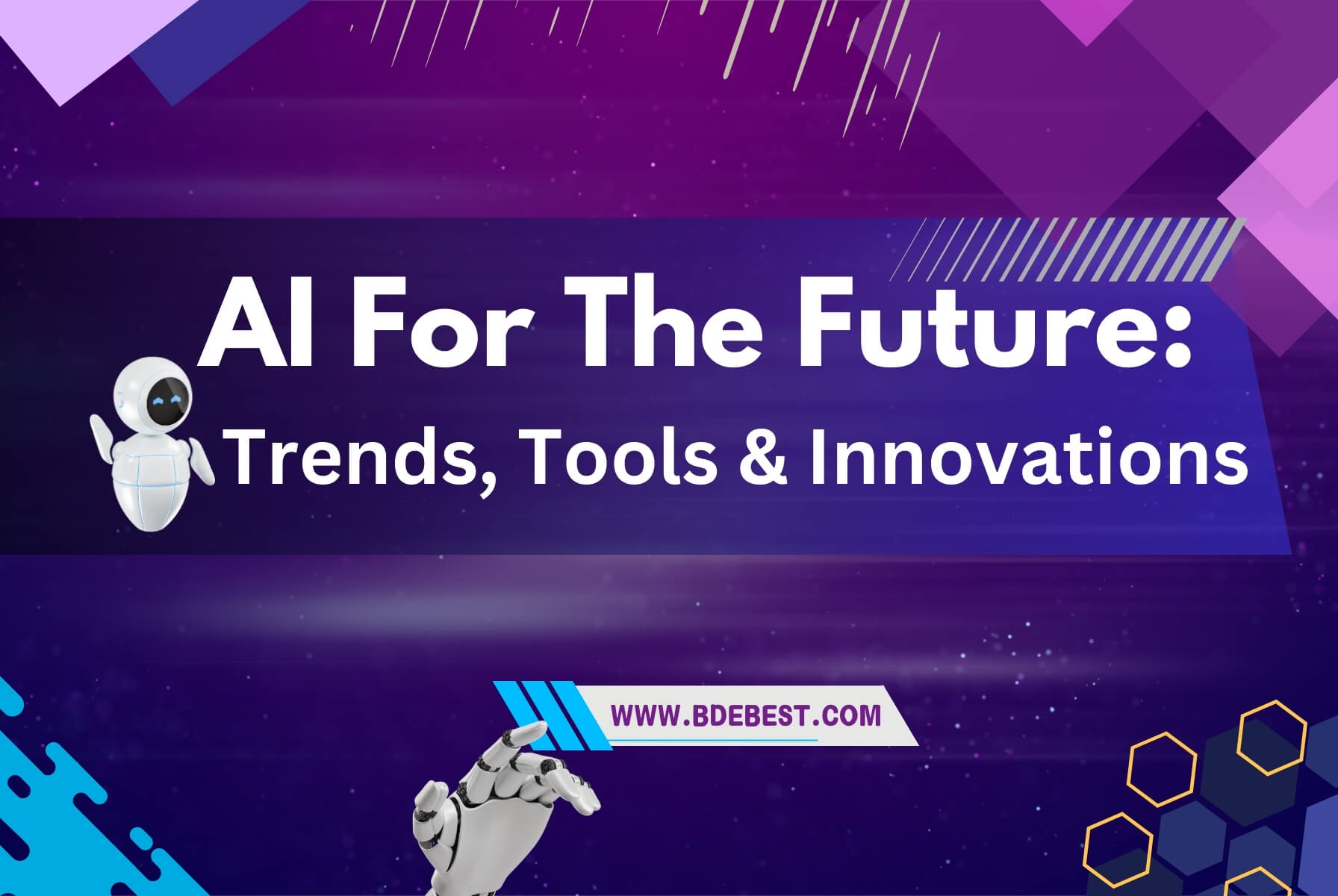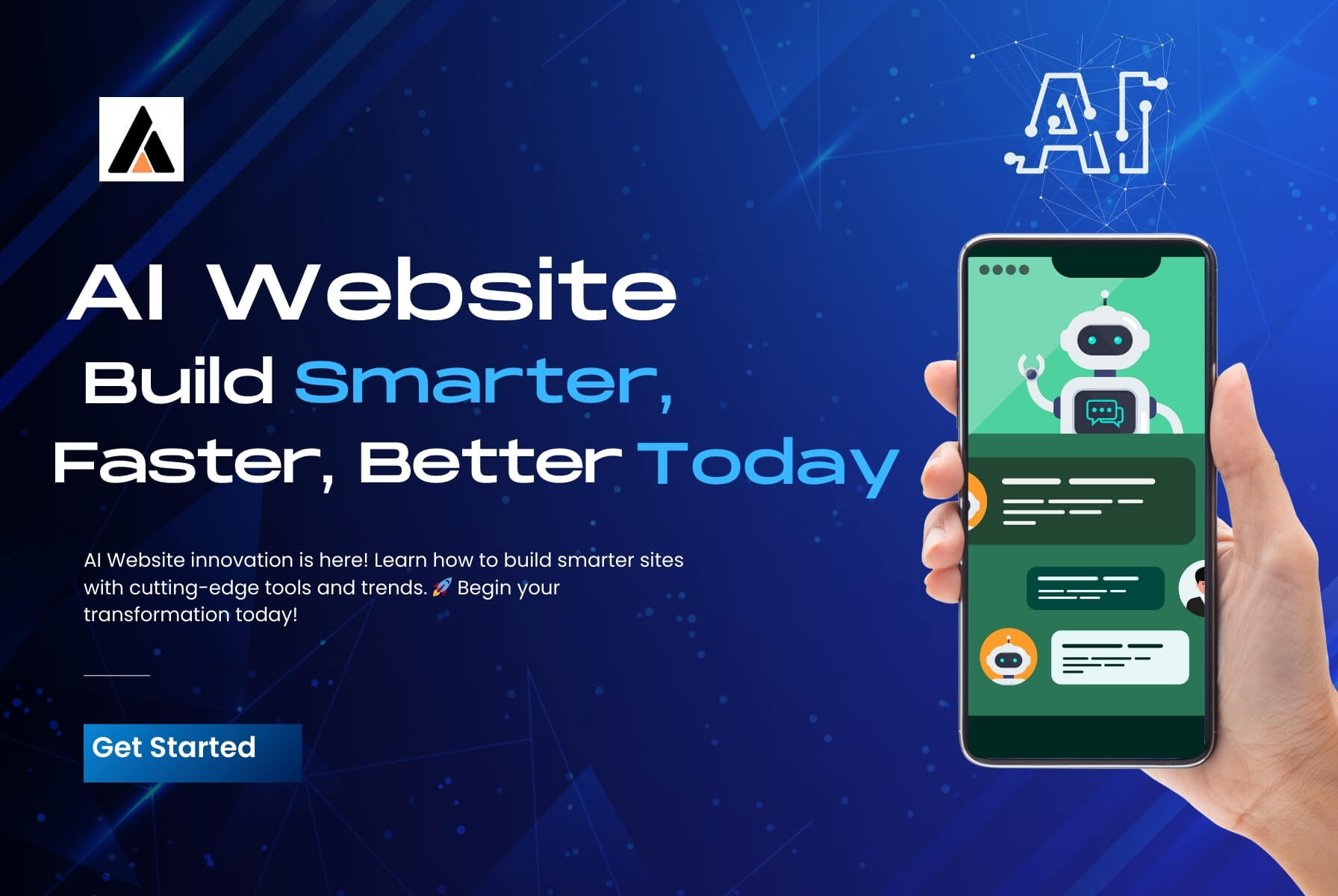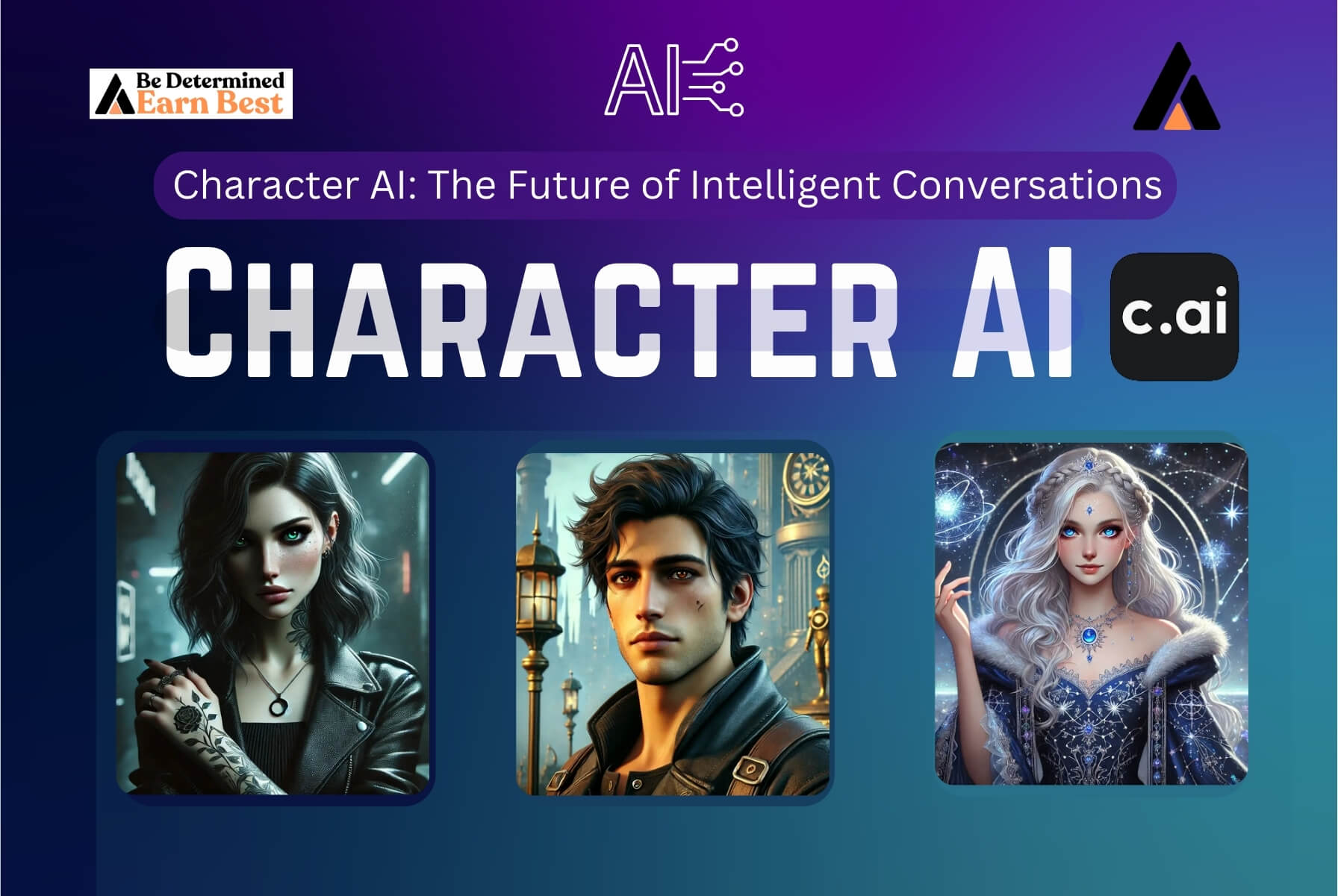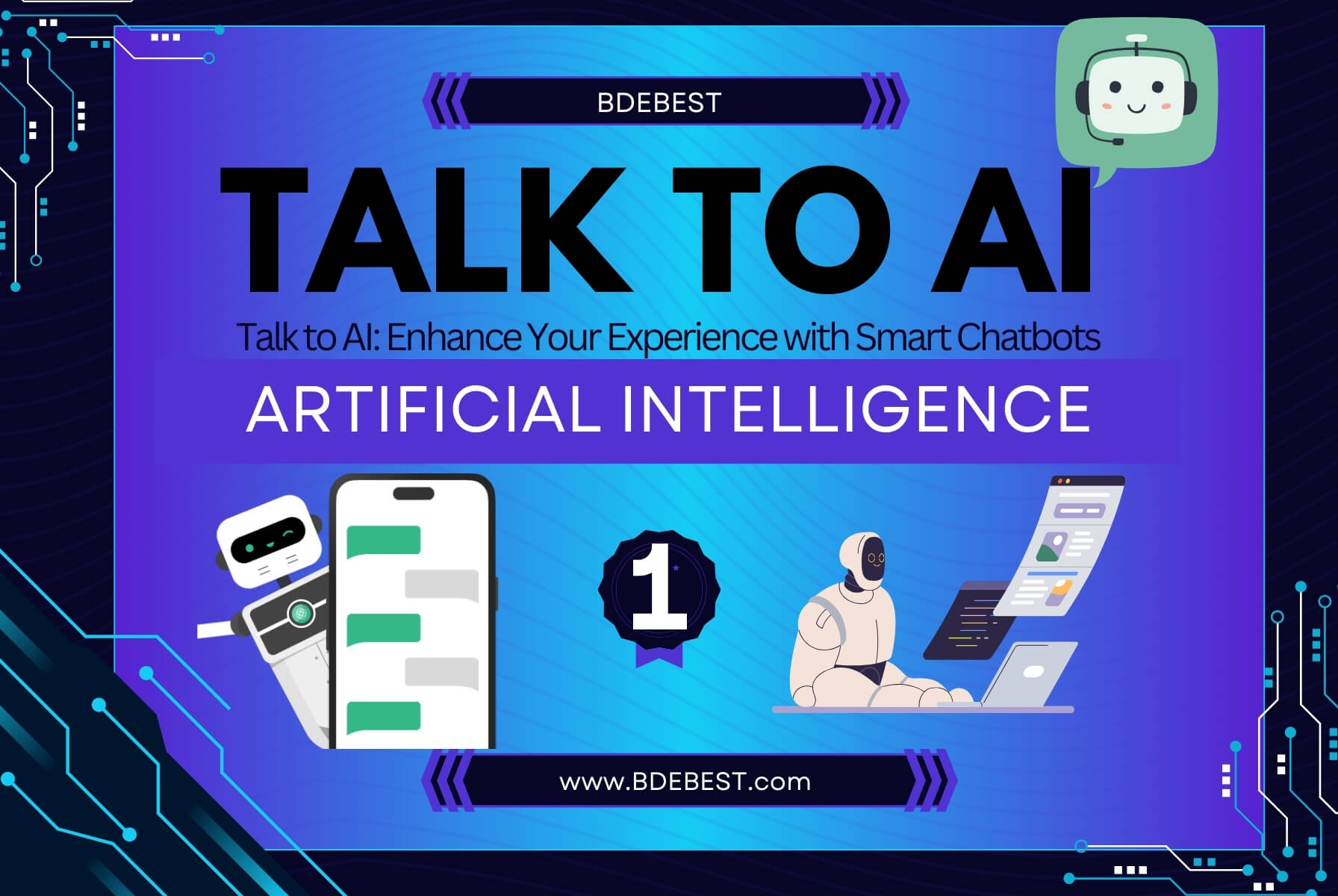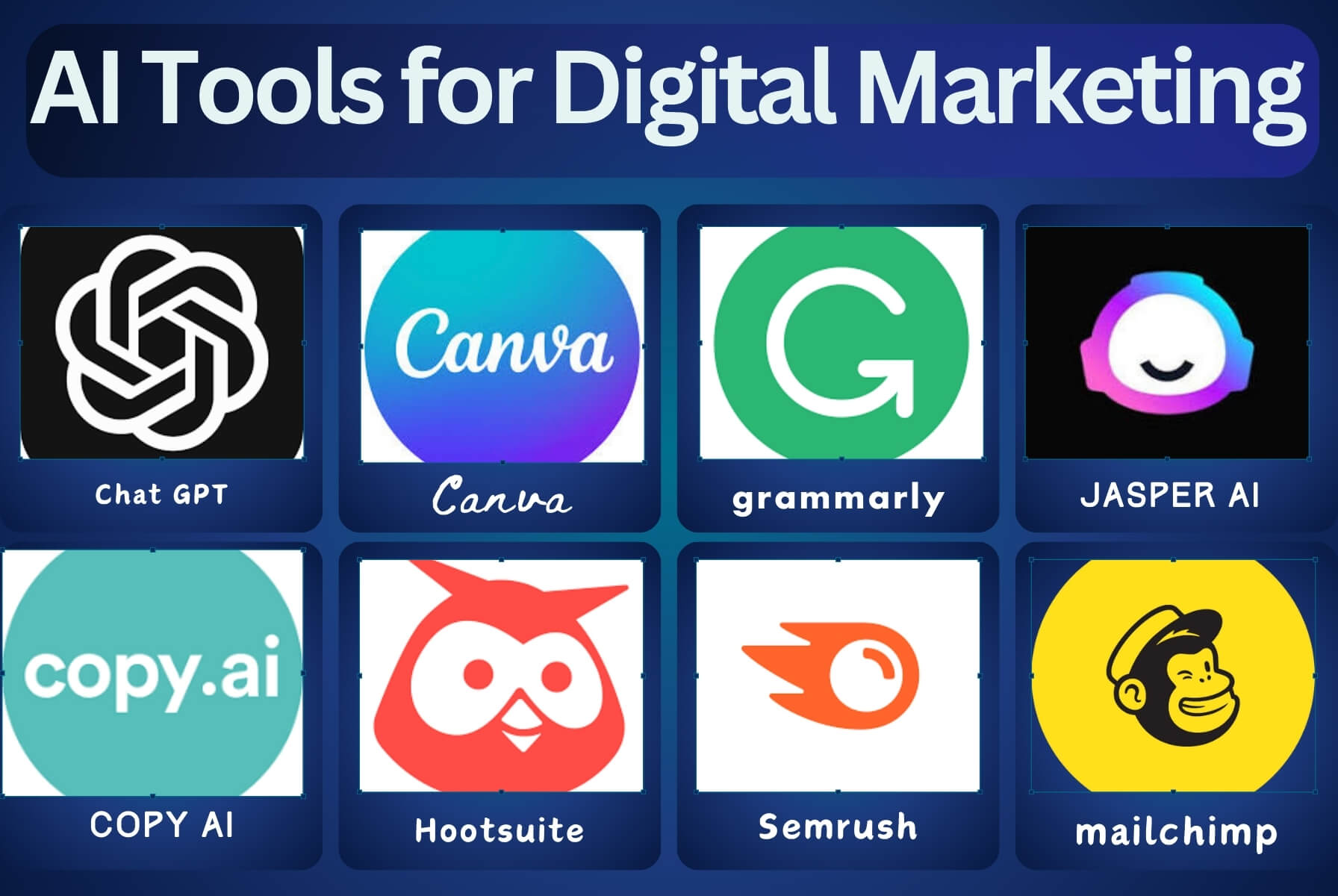Artificial Intelligence (AI) has moved from the realm of science fiction into a transformative force shaping the future of technology, business, and daily life. Whether through an AI chatbot online, a Google AI chatbot, or cutting-edge generative AI tools, AI is becoming indispensable. This article explores the essence of Artificial Intelligence, its evolution, and why it’s one of the most significant advancements of our time.
Why is Artificial Intelligence Important? Exploring Its Purpose and Impact.
Demystifying Artificial Intelligence
Artificial Intelligence refers to the ability of machines to perform tasks that typically require human cognitive functions. These tasks range from decision-making and problem-solving to natural language processing and visual recognition. The goal of AI is not merely to replicate human behavior but to enhance efficiency, accuracy, and scalability in ways humans cannot.
Today, AI is everywhere—from AI assistants like Siri and Alexa to complex systems such as OpenAI Chat that understand and generate human-like text. It has versatile applications across numerous sectors, ranging from healthcare to the entertainment industry.
A Snapshot of AI’s Journey
AI’s journey started with theoretical concepts and has grown into an industry-defining technology. Early experiments focused on creating systems capable of mimicking logical thought processes. Fast forward to 2025, and AI now powers everyday tools like AI websites that personalize user experiences and AI chatbots that provide instant customer support.
Why AI is a Buzzword in 2025
Artificial Intelligence is a buzzword because of its tangible benefits and immense potential. Here’s why:
- Transforming Industries: AI-driven innovations are redefining healthcare, finance, and marketing.
- Empowering Creativity: Tools like generative AI are enabling artists, writers, and designers to create more efficiently.
- Enhancing Accessibility: From AI chatbots online to mobile AI apps, AI is making technology accessible to everyone.
Whether you want to talk to an AI for assistance or use a Google AI chatbot for instant information, AI simplifies and improves the way we live and work.
A Brief History of Artificial Intelligence: From Fiction to Reality
Early Concepts of AI in Science Fiction
The idea of intelligent machines began in the realm of science fiction. Novels like Mary Shelley’s Frankenstein and Isaac Asimov’s I, Robot speculated on the potential and risks of artificial intelligence. These imaginative works laid the cultural groundwork for AI’s development.
Key Figures Who Defined AI
- Alan Turing
Known as the father of modern computing, Turing developed the concept of a machine that could simulate any human computational task. In his pivotal work, Computing Machinery and Intelligence, he posed the question: “Can machines exhibit thought?” This idea paved the way for AI research. - John McCarthy
McCarthy introduced the term “Artificial Intelligence” in 1956 and organized the Dartmouth Conference, which laid the foundation for AI as a recognized academic field. His work in AI technology included the creation of Lisp, a programming language that remains relevant in AI development today.
Turning Points in AI Development
- The Advent of Machine Learning:
In the 1980s and 1990s, machine learning algorithms became a focus, allowing systems to learn from data rather than rely solely on predefined rules. - Neural Networks:
Inspired by the structure of the human brain, neural networks revolutionized AI by enabling machines to process complex patterns in images, speech, and text. - The Rise of Generative AI:
Generative AI, a subset of AI technology, enables the creation of new content, such as text, images, and music. Platforms like OpenAI Chat demonstrate how generative AI can engage users in meaningful conversations and content creation.
The Role of AI-Powered Platforms
AI-powered platforms like Google AI Chatbot and AI chatbot online tools have made AI accessible to the masses. These systems leverage AI technology to provide real-time assistance, answer questions, and improve customer experiences.
Examples of AI’s Impact Today:
- AI Chatbots: Automating customer service with intelligent conversational interfaces.
- AI Websites: Enhancing personalization and improving user engagement.
- AI Assistants: Streamlining tasks like scheduling, reminders, and smart home control.
Understanding the Core of AI Technology
To grasp the significance of artificial intelligence, it’s essential to understand how it works and the technologies driving its evolution.
How Does AI Work?
At its core, AI mimics human intelligence by analyzing data, learning patterns, and making decisions. Here’s a breakdown of the key components:
- Machine Learning (ML):
- A subset of AI, ML involves training algorithms on vast datasets to make predictions or decisions without being explicitly programmed.
- Example: A recommendation system on an AI website suggesting products based on past purchases.
- Deep Learning:
- A more advanced form of ML, deep learning uses neural networks to process and analyze complex data.
- Example: Facial recognition systems or autonomous vehicles.
- Natural Language Processing (NLP):
- Natural Language Processing enables machines to comprehend, interpret, and produce human language effectively.
- Example: Chatbots like OpenAI Chat and Google AI Chatbot that can engage in meaningful conversations.
Tools That Bring AI to Life
AI technology is powered by various tools and platforms designed for specific tasks.
- AI Websites:
Platforms that use AI to provide personalized experiences, such as tailoring content or recommendations based on user behavior. - Generative AI Applications:
These tools create original content, from written articles to music and visual art.- Example: Writing assistants or design generators that leverage AI.
- AI Assistants:
Devices and applications like Alexa or Siri that help manage tasks, answer queries, and even control smart home devices. - AI Chatbots Online:
Chatbots powered by AI are increasingly used in customer service to provide instant support and address user queries efficiently.
Real-World Examples of AI
- AI Chatbots in Action:
Businesses use AI chatbots online to handle customer queries 24/7, reducing response times and improving satisfaction. - AI-Driven Analytics:
Companies rely on AI for data analysis, predicting trends, and making informed decisions. - Personalized Shopping Experiences:
E-commerce websites use AI to recommend products tailored to individual preferences, enhancing the shopping experience.
Practical Applications of Artificial Intelligence in Everyday Life
AI is no longer a futuristic concept—it’s seamlessly integrated into our daily routines.
AI Chatbots in Customer Service, Healthcare, and Education

- Customer Service:
AI chatbots streamline interactions by instantly addressing customer concerns, freeing up human agents for complex queries. Tools like Google AI Chatbot excel in delivering high-quality, automated responses. - Healthcare:
In healthcare, AI chatbots provide preliminary diagnoses, schedule appointments, and offer mental health support. - Education:
AI platforms help personalize learning experiences, offering tailored resources based on a student’s progress.
Generative AI for Creative Tasks
Generative AI has opened new horizons for creativity and innovation.
- Writing: AI tools assist in drafting blogs, stories, and professional content.
- Design: Generative AI applications create logos, advertisements, and even website layouts.
- Music: AI can compose original soundtracks or enhance existing music.
The Role of AI Assistants in Homes and Workplaces
AI assistants have evolved to become indispensable for managing tasks efficiently:
- At Home: Devices like Alexa control smart home systems, set reminders, and provide entertainment.
- At Work: AI assistants schedule meetings, organize emails, and provide valuable insights from data.
AI Websites: Personalization and Streamlined User Experiences
AI websites analyze user behavior to provide a tailored browsing experience. For example:
- E-commerce: Recommendations based on browsing history.
- Content Platforms: Personalized news feeds or video suggestions.
Transforming Lives and Industries: The Advantages of Artificial Intelligence.
AI is revolutionizing the world by streamlining processes, enhancing decision-making, and opening doors to opportunities previously deemed impossible.
1. Enhancing Productivity and Efficiency
AI-powered tools enable businesses and individuals to achieve more in less time.
- AI Chatbots Online: Automate repetitive customer service tasks, ensuring quick responses 24/7.
- Predictive Analytics: Help companies anticipate market trends and customer behavior, allowing for informed decision-making.
- Generative AI Applications: Aid in creating content, designs, and marketing materials, significantly reducing workload for creative teams.
For example, small businesses using platforms like OpenAI Chat can generate marketing copy or streamline internal communications effortlessly.
2. Revolutionizing Industries
Healthcare
AI technology is transforming healthcare by improving diagnostics and treatment planning.
- AI-driven imaging tools assist in identifying diseases like cancer at early stages.
- Chatbots in healthcare provide round-the-clock support for scheduling, symptom checking, and mental health assistance.
Marketing
AI websites and platforms enable marketers to personalize campaigns with unparalleled precision.
- Tools powered by AI analyze customer data to deliver hyper-targeted advertisements.
- AI assistants manage campaigns, track performance metrics, and suggest improvements.
E-commerce
Online retailers leverage AI to provide personalized shopping experiences.
- AI Websites: Suggest products based on user behavior, boosting sales.
- Virtual assistants handle inquiries, making online shopping more seamless.
3. Empowering Small Businesses
AI is leveling the playing field for small enterprises:
- AI Chatbots Online: Enable small businesses to provide efficient customer service without a large team.
- Generative AI: Helps craft professional-quality marketing content, from blogs to product descriptions.
- Predictive tools aid in inventory management and financial forecasting, ensuring sustainability and growth.
For instance, a local retailer using an AI chatbot can engage customers, answer queries, and recommend products, enhancing customer satisfaction without added costs.
4. Improved Problem-Solving with AI Assistants and Analytics
AI assistants enhance productivity by tackling complex tasks, from scheduling to data analysis.
- AI assistants like Google AI Chatbot streamline day-to-day operations, improving time management.
- Predictive analytics identify trends and potential challenges, equipping businesses with proactive solutions.
These tools not only save time but also minimize human error, making them indispensable in today’s fast-paced world.
Addressing the Challenges of AI Technology
While artificial intelligence offers tremendous benefits, it also raises concerns that must be addressed to ensure responsible development and use.
1. Ethical Dilemmas in AI
AI systems may unintentionally reflect biases embedded in their training data.
- Lack of transparency in AI decision-making processes makes accountability difficult.
- Ensuring fairness and equity in AI outcomes remains a critical challenge.
For example, an AI chatbot might unintentionally favor one demographic over another, highlighting the need for ethical guidelines and oversight.
2. Privacy Concerns with AI-Driven Data Collection
AI relies heavily on data to function effectively, but this dependency raises privacy issues.
- Data breaches and misuse can expose sensitive personal information.
- Companies must implement robust security measures to protect user data collected through AI websites and chatbots.
Users engaging with tools like OpenAI Chat or Google AI Chatbot need reassurance that their data is secure and used responsibly.
3. The Economic Impact: AI and the Future of Work
As AI technology automates tasks, concerns about job displacement arise.
- Routine and manual jobs are at the highest risk, prompting a need for workforce reskilling.
- On the flip side, AI creates new job opportunities in fields like AI development, data analysis, and machine learning.
Encouraging adaptability and lifelong learning can help mitigate the negative effects of automation on employment.
4. Addressing Fears: Can AI Technology Replace Humans?
While AI excels at tasks requiring data processing and pattern recognition, it lacks human creativity, empathy, and intuition.
- AI is designed as a tool to complement human skills rather than replace human expertise.
- Collaboration between humans and AI, rather than competition, will drive progress.
For instance, talking to an AI assistant like Siri can simplify tasks but cannot replace the nuanced decision-making of a human manager.
Anticipating the Future of Artificial Intelligence: Trends and Forecasts.
Emerging Trends in AI
The field of artificial intelligence is advancing at an unprecedented pace. Key advancements and trends in AI that demand attention include:
- Generative AI:
- Generative AI is revolutionizing creativity by producing text, images, music, and even code.
- Tools like OpenAI Chat are being used for content generation, enabling businesses to save time and enhance creativity.
- Autonomous Systems:
- From self-driving cars to drones, autonomous systems are becoming more reliable and efficient.
- Industries like logistics and transportation are leveraging this technology to optimize operations.
- AI-Enhanced Robotics:
- Robots powered by AI are advancing in industries like healthcare, manufacturing, and agriculture.
- These systems are capable of precise tasks, such as surgery, harvesting crops, and assembling products.
Predictions for the Next Decade
AI’s potential to address global challenges will be a defining factor in its development over the next ten years.
- Combatting Climate Change:
- AI technology is being used to optimize energy usage, monitor environmental changes, and design sustainable solutions.
- Predictive analytics in climate modeling is improving our ability to address issues like deforestation and carbon emissions.
- Advancements in Medical Research:
- AI-driven tools are speeding up drug discovery and enabling personalized medicine.
- Predictive models in healthcare can identify disease outbreaks and optimize treatment plans.
The Intersection of AI and Creativity
Generative AI is pushing the boundaries of what’s possible in art, writing, and design:
- Tools like OpenAI Chat help writers draft compelling content.
- AI-powered platforms assist in creating visual art and animations, democratizing creativity for individuals and businesses.
- Musicians and filmmakers are using AI to compose soundtracks and generate special effects.
Future Innovations from OpenAI and Google AI Chatbot
Companies like OpenAI and Google AI Chatbot are leading the charge in AI development.
- OpenAI Chat: Known for its conversational AI, OpenAI is focusing on enhancing user interactions with more intuitive and context-aware systems.
- Google AI Chatbot: Google is leveraging its expertise in data and search algorithms to create chatbots that deliver accurate, relevant, and timely information.
- Both platforms are setting benchmarks in AI chatbots online, making them essential tools for businesses and individuals alike.
Top AI Tools and Platforms for 2025
As AI technology continues to grow, businesses and individuals have a wealth of tools to choose from. Here’s a curated list of top AI solutions for various needs.
1. Best AI Chatbots for Online Interaction
- OpenAI Chat: Ideal for generating natural, human-like conversations and creating content.
- Google AI Chatbot: A top choice for accurate and efficient customer support.
- Other Options: Many platforms offer niche solutions, such as chatbots tailored for specific industries like healthcare or e-commerce.
2. AI Websites for Business Automation
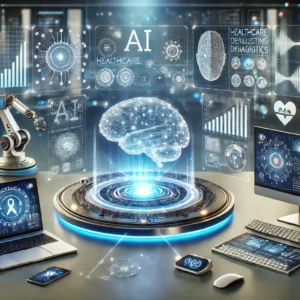
AI websites are designed to help businesses automate tasks, improve personalization, and analyze data:
- HubSpot CRM: Combines AI-powered analytics with customer relationship management.
- Shopify AI Tools: Provide personalized product recommendations and enhance the shopping experience.
- Content Optimization Platforms: Tools like Jasper AI assist in crafting SEO-friendly content.
3. Generative AI Applications for Creativity
For businesses and creators looking to innovate, generative AI tools are indispensable:
- Canva with AI Integration: Simplifies graphic design with AI-powered templates.
- DALL·E: Generates unique images from textual descriptions.
- AI Music Composition Tools: Platforms like AIVA create original soundtracks.
4. Tips for Integrating AI Tools into Your Workflow
To maximize the benefits of AI tools, follow these steps:
- Identify Your Needs: Determine whether you need an AI assistant for productivity, an AI chatbot for customer interaction, or a generative AI tool for creativity.
- Test Platforms: Many tools, like Google AI Chatbot and OpenAI Chat, offer free trials or demos to help you evaluate their capabilities.
- Equip Your Team: Ensure team members are trained to use AI tools effectively to improve processes.
- Monitor Performance: Use analytics to measure how well the AI tools are meeting your goals.
Getting Started with Artificial Intelligence: A Beginner’s Guide
Artificial Intelligence (AI) has quickly become a vital part of modern technology, making our lives easier, more productive, and more connected. But for beginners, diving into the world of AI technology can feel daunting. This guide will empower you to confidently explore AI, whether you’re curious about AI chatbots online, want to boost productivity with an AI assistant, or experiment with generative AI for creative tasks.
Easy Ways to Talk to an AI
Starting your journey with AI can be as simple as having a conversation.
1. Using AI Chatbots Online
AI chatbots are among the easiest ways to interact with artificial intelligence.
- Platforms like OpenAI Chat and Google AI Chatbot are designed to answer questions, perform tasks, and engage in meaningful conversations.
- Examples of simple tasks you can try:
- Ask for quick facts or explanations.
- Get recommendations for movies, books, or products.
- Seek guidance on day-to-day activities like meal planning or fitness tips.
2. Tips for Beginners:
- Start with widely used platforms like Google AI Chatbot, which offer user-friendly interfaces.
- Test out different chatbots to find one that meets your specific needs, whether it’s customer support or brainstorming ideas.
Leveraging AI Assistants for Productivity and Organization
AI assistants can streamline your daily tasks and help you stay organized.
What Are AI Assistants?
AI assistants like Siri, Alexa, and Google Assistant use artificial intelligence to perform tasks based on voice or text commands.
How They Can Help You:
- Manage Schedules: Set reminders, schedule meetings, and track appointments effortlessly.
- Simplify Tasks: Create to-do lists, send emails, and control smart devices with voice commands.
- Boost Productivity: AI assistants can quickly pull up information, saving you time and effort.
Pro Tip:
Explore advanced tools that integrate AI assistants with other apps. For instance, pairing your AI assistant with a calendar app can optimize your daily routine.
Experimenting with Generative AI for Fun and Work
Generative AI is one of the most exciting developments in AI technology, offering endless possibilities for creativity.
What Is Generative AI?
Generative AI refers to systems that can produce original content, including text, visuals, music, and even programming code. Popular platforms like OpenAI Chat make generative AI accessible to everyone.
How to Use Generative AI:
- For Fun:
- Create artwork or design visual elements using tools like DALL·E.
- Write poetry, short stories, or scripts with the help of AI writing assistants.
- For Work:
- Draft emails, reports, and presentations faster.
- Create impactful marketing materials such as blog articles, social media content, and advertising copy with ease.
Examples:
- Try an AI website that offers design templates powered by generative AI.
- Use OpenAI Chat to brainstorm ideas or outline a project.
Best Practices for Safely Exploring AI Technology
While artificial intelligence offers incredible benefits, it’s important to approach it responsibly.
1. Protect Your Privacy
- Use platforms with robust data protection policies, especially when interacting with AI chatbots online.
- Avoid sharing sensitive personal information with AI systems.
2. Verify Information
- While AI tools like Google AI Chatbot are highly accurate, always cross-check critical information from trusted sources.
3. Start Simple
- Begin with easy-to-use tools before diving into more advanced applications.
- For example, start by asking an AI assistant to set reminders or perform calculations before exploring complex tasks.
4. Stay Updated
- AI technology evolves rapidly, so keep an eye on updates and new tools that might improve your experience.
Artificial Intelligence in Business: Driving Innovation and Growth
Artificial Intelligence (AI) is revolutionizing the business world by enabling organizations to innovate, optimize operations, and connect with customers like never before. From personalized marketing campaigns to streamlining workflows with AI chatbots and AI assistants, businesses are leveraging the power of AI technology to stay competitive and achieve their goals.
AI in Marketing: Personalized Campaigns and Customer Insights
Marketing has been transformed by artificial intelligence, making campaigns more targeted and effective.
1. Personalization at Scale
- AI-driven platforms analyze customer behavior to deliver personalized recommendations and advertisements.
- AI websites use predictive analytics to tailor content, ensuring customers see products and services that meet their needs.
- Tools like OpenAI Chat help marketers generate tailored email campaigns and social media posts in seconds.
2. Deeper Customer Insights
- AI-powered analytics tools process vast amounts of data to uncover trends and preferences.
- These insights allow businesses to make informed decisions, improving customer retention and satisfaction.
Example:
E-commerce platforms use Google AI Chatbot to engage customers, answer questions, and recommend products based on browsing history.
Optimizing Processes with AI-Powered Chatbots and Virtual Assistants.
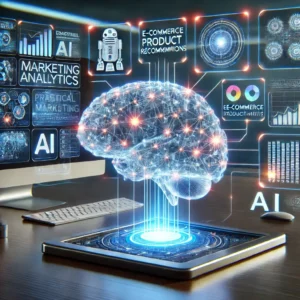
Businesses are embracing AI chatbots online and virtual assistants to enhance efficiency and cut costs.
1. Automating Customer Service
- AI chatbots provide 24/7 support, resolving common issues without human intervention.
- They handle high volumes of queries, freeing up human agents to focus on complex tasks.
Example:
Retailers use AI chatbots to assist customers during the purchasing process, answering questions about products and availability.
2. Improving Internal Processes
- AI assistants help employees manage schedules, set reminders, and organize tasks.
- In logistics, AI optimizes routes and predicts demand, reducing operational costs.
Case Studies of AI-Powered Business Success
1. AI in Healthcare
Hospitals use AI-powered diagnostics tools to identify diseases earlier and with greater accuracy. AI assistants streamline administrative tasks, allowing medical professionals to focus on patient care.
2. AI in Retail
A clothing brand implemented generative AI to create custom advertisements, increasing click-through rates by 30%.
3. AI in Finance
Banks use AI technology to detect fraudulent transactions in real time and offer personalized financial advice through AI chatbots.
How Businesses Use AI Websites and Generative AI to Stay Ahead
1. AI Websites for Better User Experiences
- AI websites adapt to user behavior, offering personalized navigation and content recommendations.
- This creates a seamless and engaging browsing experience, increasing conversion rates.
2. Generative AI for Creativity and Innovation
- Businesses use generative AI to create marketing materials, product prototypes, and even video content.
- Platforms like OpenAI Chat help teams brainstorm and refine ideas faster than traditional methods.
FAQ Section: Your Comprehensive Guide to Artificial Intelligence
1. What is Artificial Intelligence, and why is it important?
Artificial Intelligence is the simulation of human intelligence in machines, enabling them to learn, reason, and solve problems. It’s important because it improves efficiency, decision-making, and innovation across industries.
2. How does AI differ from traditional programming?
Traditional programming follows predefined rules, while AI learns and adapts based on data.
3. What are the key components of AI technology?
- Machine Learning: Enables AI to learn from data.
- Natural Language Processing (NLP) equips AI systems with the ability to interpret and generate human language seamlessly.
- Neural Networks: Mimic the human brain to analyze and interpret data.
4. What is Generative AI, and how is it used?
Generative AI allows the creation of unique content, including written works, visual art, and audio compositions. Businesses use it for marketing, product design, and content creation.
5. What are some common examples of AI in daily life?
- Virtual assistants like Siri and Alexa.
- AI-powered recommendations on e-commerce platforms.
- AI chatbots online for customer support.
6. How do AI chatbots work, and why are they so popular?
AI chatbots use NLP and machine learning to understand queries and provide accurate responses, making them ideal for instant customer service.
7. What makes AI assistants like Google AI Chatbot unique?
They integrate seamlessly with other tools, offering advanced functionality like voice recognition and real-time data access.
8. Are AI tools safe to use?
Yes, but businesses must prioritize data security and transparency to build trust.
9. How can AI websites enhance user experiences?
By analyzing user behavior to deliver personalized content and recommendations.
10. What is OpenAI, and what role does it play in advancing AI?
OpenAI is a leading AI research lab developing tools like OpenAI Chat to make AI accessible and beneficial for everyone.
11. Can AI completely replace humans in certain jobs?
AI can automate repetitive tasks, but human creativity and empathy remain irreplaceable.
12. What are the ethical concerns around AI development?
Bias, data privacy, and accountability are major concerns that require responsible AI development.
13. How can beginners start using AI chatbots online?
Explore platforms like Google AI Chatbot or OpenAI Chat, which are user-friendly and require minimal technical knowledge.
14. What are some innovative uses of AI in business?
- Personalized marketing campaigns.
- Predictive maintenance in manufacturing.
- Fraud detection in finance.
15. What is the future of Artificial Intelligence?
The future of AI includes advancements in autonomous systems, generative AI, and its application in solving global challenges like climate change.
Artificial Intelligence is transforming business operations, unlocking new opportunities for innovation and growth. Whether it’s AI chatbots online, generative AI, or AI websites, companies are harnessing AI to create a competitive edge. As AI technology continues to advance, its potential to revolutionize industries knows no bounds.
For more insights, check out our related articles on leveraging AI for marketing, creativity, and operational efficiency.

